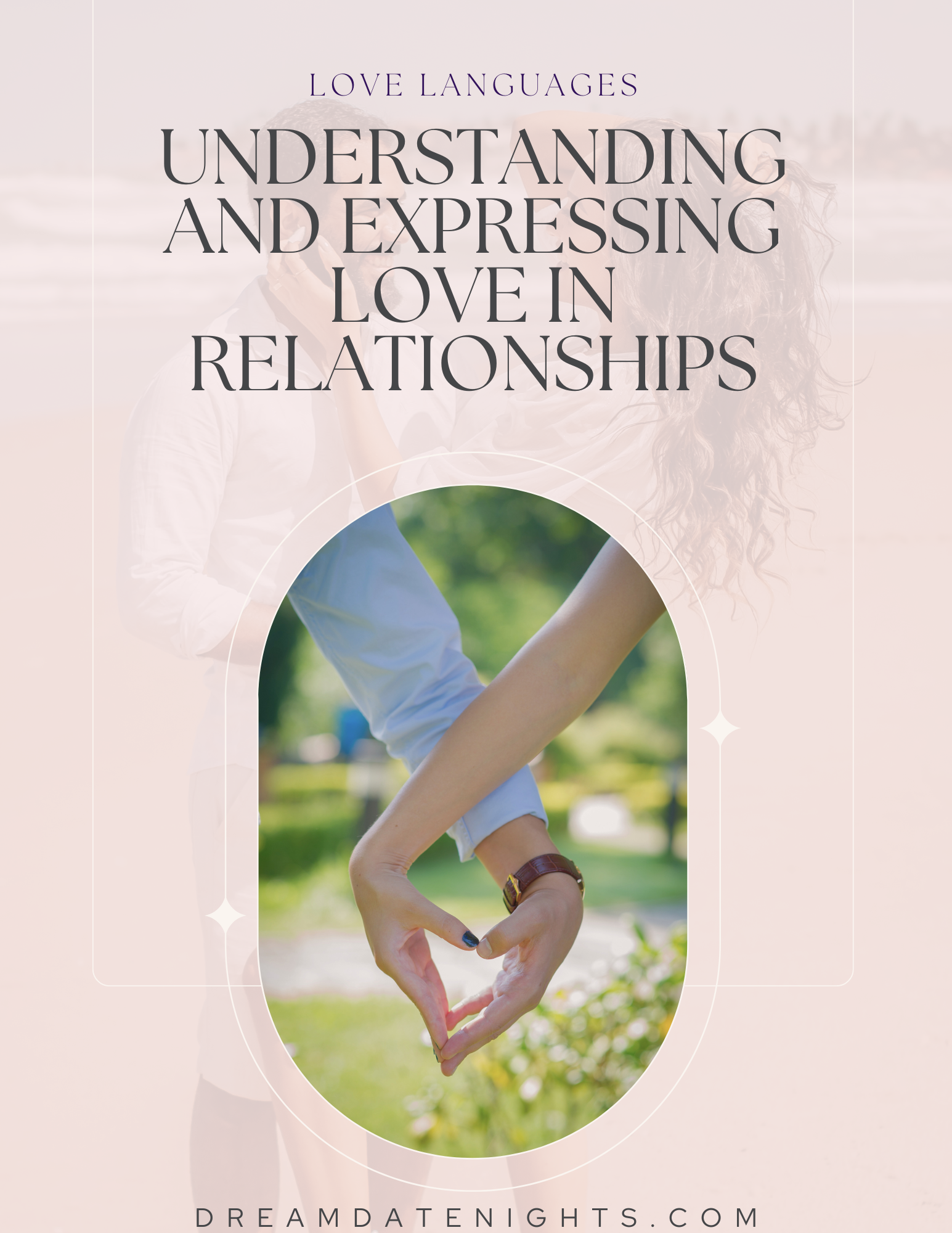The Importance of Compromise in Conflict Resolution for Couples
Conflicts are inevitable in any relationship. It's so stressful when they happen, and it's tough not to wonder if any other couple has conflicts like that. Spoiler alert: YES! Conflicts are 100% a natural part of all relationships. While disagreements and arguments can be healthy and help strengthen a relationship, if not handled properly, they can lead to resentment and even the end of the relationship.

This is where the importance of compromise in conflict resolution comes in.
There are some affiliate links below, but they are all products I highly recommend. For more info, view my disclosure.
Compromise is a vital tool in resolving your conflicts. It involves finding a middle ground where both parties can feel satisfied with the outcome.
It requires active listening, empathy, and understanding from both partners.
It can be difficult to compromise, especially when emotions are high, but it is vital for the long-term success of the relationship.
When couples learn how to compromise effectively, they can build trust and mutual respect. It allows them to work together to find solutions to problems that benefit both parties.
In contrast, when one partner always gets their way, it can create a power imbalance that can lead to resentment and feelings of being undervalued.
Learning how to compromise is an essential skill for couples to develop to maintain a healthy and happy relationship.

Understanding Conflict in Relationships
Relationships can be a source of happiness and fulfillment, but they can also be a source of stress and conflict.
When two individuals come together, they bring with them their own unique perspectives, experiences, and expectations. These differences can lead to disagreements and disputes that can strain the relationship.
Types of Conflicts
There are many different types of conflicts that can arise in a relationship.
Some of the most common include:
- Communication conflicts: These occur when there is a breakdown in communication between partners. Misunderstandings, assumptions, and lack of clarity can all contribute to communication conflicts.
- Value conflicts: These occur when partners have different values or beliefs about important issues. For example, one partner may prioritize career success while the other values family time.
- Power conflicts: These occur when one partner tries to exert control or dominance over the other. This can include controlling behavior, manipulation, and emotional abuse.
Common Causes of Disputes
While conflicts can arise from a variety of factors, some common causes include:
- Unmet needs: When one partner feels that their needs are not being met, it can lead to frustration and resentment.
- Different expectations: Partners may have different expectations about the relationship, such as the level of commitment or the role of each partner.
- Trust issues: Trust is essential in any relationship, and when it is broken it can lead to conflict and stress.
In order to resolve conflicts in a relationship, it is important to understand the underlying causes and work towards finding a solution that meets the needs of both partners.
This often requires compromise and open communication.
By working together, partners can strengthen their relationship and build a foundation of trust and understanding.

Compromise as a Foundation for Resolution
In any relationship, conflicts are bound to arise. It's how you handle these conflicts that can make or break your relationship.
One of the most important tools for resolving conflicts is compromise.
Compromise is an effective way to find solutions to problems that both parties can agree on.
Defining Compromise
Compromise is a process of finding a solution that satisfies both parties involved in a conflict. It is a give-and-take approach where both parties make concessions to reach a mutually beneficial outcome.
Compromise involves active listening, understanding each other's perspectives, and finding common ground.

Grab Our FREE Love Languages Guide!
Love is a universal language, but did you know that people express and receive love in different ways? Discover the concept of love languages and how they can transform your relationship!
Benefits of Compromise
Compromise has several benefits for a healthy relationship.
It helps to build trust and respect between partners.
When both parties are willing to compromise, it shows that they value each other's opinions and are willing to work together to find a solution.
This, in turn, strengthens the bond between partners and helps to create a more harmonious relationship.
Compromise also helps to prevent conflicts from escalating.
When both parties are willing to compromise, they are less likely to become defensive or hostile towards each other.
This creates a more positive environment for resolving conflicts and finding solutions.
Communication: The Pathway to Understanding
Effective communication is the cornerstone of any healthy relationship. It is especially important in conflict resolution for couples.
Communication is not just about talking, but also about listening and understanding your partner's perspective.

Improving Communication Skills
Improving your communication skills is essential to resolving conflicts in a healthy and productive way.
One way to improve your communication skills is to identify and understand your communication style.
Communication styles can be categorized into four main types: passive, aggressive, passive-aggressive, and assertive.
Passive communication involves avoiding conflict and not expressing your needs or feelings.
Aggressive communication involves attacking and blaming others.
Passive-aggressive communication involves expressing your anger indirectly.
Assertive communication involves expressing your needs and feelings in a direct and respectful way.
To improve your communication skills, it is important to practice assertive communication.
This involves expressing your needs and feelings in a clear and respectful manner.
Active Listening Techniques
Active listening is a crucial component of effective communication.
It involves fully focusing on what your partner is saying and understanding their perspective.
Active listening techniques include:
- Paraphrasing: Restating what your partner has said in your own words to ensure you understand their perspective.
- Asking open-ended questions: Asking questions that require more than a yes or no answer can help you understand your partner's perspective.
- Summarizing: Summarizing what your partner has said can help you ensure you have understood their perspective correctly.
- Reflecting feelings: Acknowledging and validating your partner's feelings can help them feel heard and understood.
Respecting Individual Differences
In any relationship, it is important to acknowledge and respect the individual differences that exist between partners. This is especially crucial when it comes to conflict resolution.
Respecting each other's values, beliefs, needs, and goals can help prevent conflicts from escalating and improve the chances of finding a compromise that works for both parties.
Values and Beliefs
Values and beliefs are deeply ingrained in our personalities and are often shaped by our upbringing, culture, and life experiences.
It is important to recognize that your partner may have different values and beliefs than you do and to respect their right to hold those beliefs.
When conflicts arise, it is important to have an open and honest discussion about your values and beliefs.
This can help you understand where your partner is coming from and find common ground.
It is important to avoid attacking or belittling your partner's beliefs, as this can lead to defensiveness and further conflict.

Needs and Goals
Everyone has different needs and goals in life, and it is important to acknowledge and respect these differences.
When conflicts arise, it is important to identify and communicate your needs and goals to your partner.
This can help them understand where you are coming from and find a compromise that works for both of you.
It is also important to listen to your partner's needs and goals and try to find a solution that meets both of your needs.
This requires mutual respect and a willingness to compromise.
It is important to avoid being selfish or only focusing on your own needs, as this can lead to resentment and further conflict.
Strategies for Effective Conflict Resolution
When conflicts arise in a relationship, it is important to have effective strategies for resolving them. Here are two strategies that can help:
Developing Negotiation Skills
Negotiation is a key skill in conflict resolution. It involves finding a solution that works for both parties involved.
To develop your negotiation skills, start by identifying what you want and what your partner wants.
Then, brainstorm ideas that could meet both of your needs.
During the negotiation process, be open to compromise and be willing to listen to your partner's ideas.
Remember that negotiation is a give-and-take process, so be prepared to make concessions as well.
Finding Common Ground
Another effective strategy for resolving conflicts is to find common ground.
This involves identifying areas where you and your partner agree and building on those areas.
For example, if you both want to spend more quality time together, you could brainstorm activities that you both enjoy and plan to do them together.
Finding common ground can help build trust and commitment in your relationship.
The Role of Emotional Intelligence
In conflict resolution, emotional intelligence plays a crucial role in helping couples understand and manage their emotions effectively.
Emotional intelligence involves being aware of your own emotions and those of others, and using this awareness to guide your thoughts and actions.
Self-Awareness in Conflicts
Self-awareness is the foundation of emotional intelligence. It involves being able to recognize and understand your own emotions, thoughts, and behaviors.
In conflicts, self-awareness helps you to identify your triggers and understand how your emotions are affecting your behavior.
By being self-aware, you can take steps to manage your emotions and prevent them from escalating the conflict.
Empathy and Compassion
Empathy and compassion are also important components of emotional intelligence.
Empathy involves being able to understand and share the feelings of others.
When conflicts arise, empathy allows you to see the situation from your partner's perspective, which can help you to find common ground and work towards a resolution.
Compassion involves showing kindness and concern for others.
In conflicts, compassion can help you to approach the situation with a positive attitude and a willingness to find a solution that works for both you and your partner.
By showing compassion, you can create a more supportive and understanding environment that encourages open communication and collaboration.
Importance of Affection
Affection is a crucial aspect of any romantic relationship. It helps to foster intimacy and emotional connection between partners.
When conflicts arise, it's easy to become distant and withhold affection from your partner. However, this can lead to further tension and strain on the relationship.
Therefore, it's important to continue showing affection towards your partner, even during times of conflict.
Simple gestures such as holding hands, hugging, and kissing can go a long way in maintaining intimacy and connection with your partner.
These acts of affection can help to ease tension and remind both partners of the love and affection that brought them together in the first place.
Reconnecting After Arguments
Arguments are a natural part of any relationship, and it's important to find ways to reconnect with your partner after a disagreement.
One way to do this is by engaging in activities that you both enjoy, such as going for a walk or watching a movie together.
This can help to shift the focus away from the conflict and towards the positive aspects of the relationship.
Another way to reconnect is by having an open and honest conversation about the conflict.
This can help to clear the air and ensure that both partners are on the same page moving forward.
It's important to approach these conversations with a calm and neutral tone, and to actively listen to your partner's perspective.

When to Seek Couples Therapy
Managing conflict in a relationship can be challenging, and sometimes it can feel overwhelming. If you find that you and your partner are struggling to resolve your issues, it may be time to seek professional help.
Couples therapy can be an effective way to work through problems and improve your relationship.
Recognizing the Need for Professional Help
It can be difficult to know when to seek couples therapy. However, if you find that you and your partner are constantly arguing, unable to communicate effectively, or struggling to set and maintain boundaries, it may be time to consider therapy.
Other signs that couples therapy may be helpful include:
- Feeling disconnected or distant from your partner
- Struggling with intimacy or sexual issues
- Dealing with infidelity or trust issues
- Facing major life changes, such as the birth of a child or a job loss
If you are unsure whether couples therapy is right for you, consider speaking with a therapist or mental health professional.
They can help you assess your situation and determine whether therapy is the best course of action.

The Process of Couples Therapy
Couples therapy can be scary at first, and knowing what to expect can help. It typically involves meeting with a therapist or counselor on a regular basis to discuss your relationship and work through your issues.
During therapy, you and your partner will learn new skills and strategies for communicating effectively, managing conflict, and setting and maintaining healthy boundaries. It's not about placing blame or finding fault, but coming together to solve communication issues.
Therapy sessions may involve individual and joint sessions, as well as homework assignments and exercises to practice the skills you learn in therapy.
The length of therapy will depend on your specific needs and goals, but it typically lasts several months to a year.
Couples therapy can be an effective way to improve your relationship and work through difficult issues.
If you are struggling to manage conflict in your relationship, consider seeking professional help.
A trained therapist or counselor can help you and your partner develop the skills and strategies you need to build a stronger, healthier relationship.


Hi, We’re Natasha & Dan!
We love travel, puzzles, and finding fun in the little things. When we’re not traveling, we live in the mountains of Colorado home with our two crazy rescue pups, Roxy & Rico.

